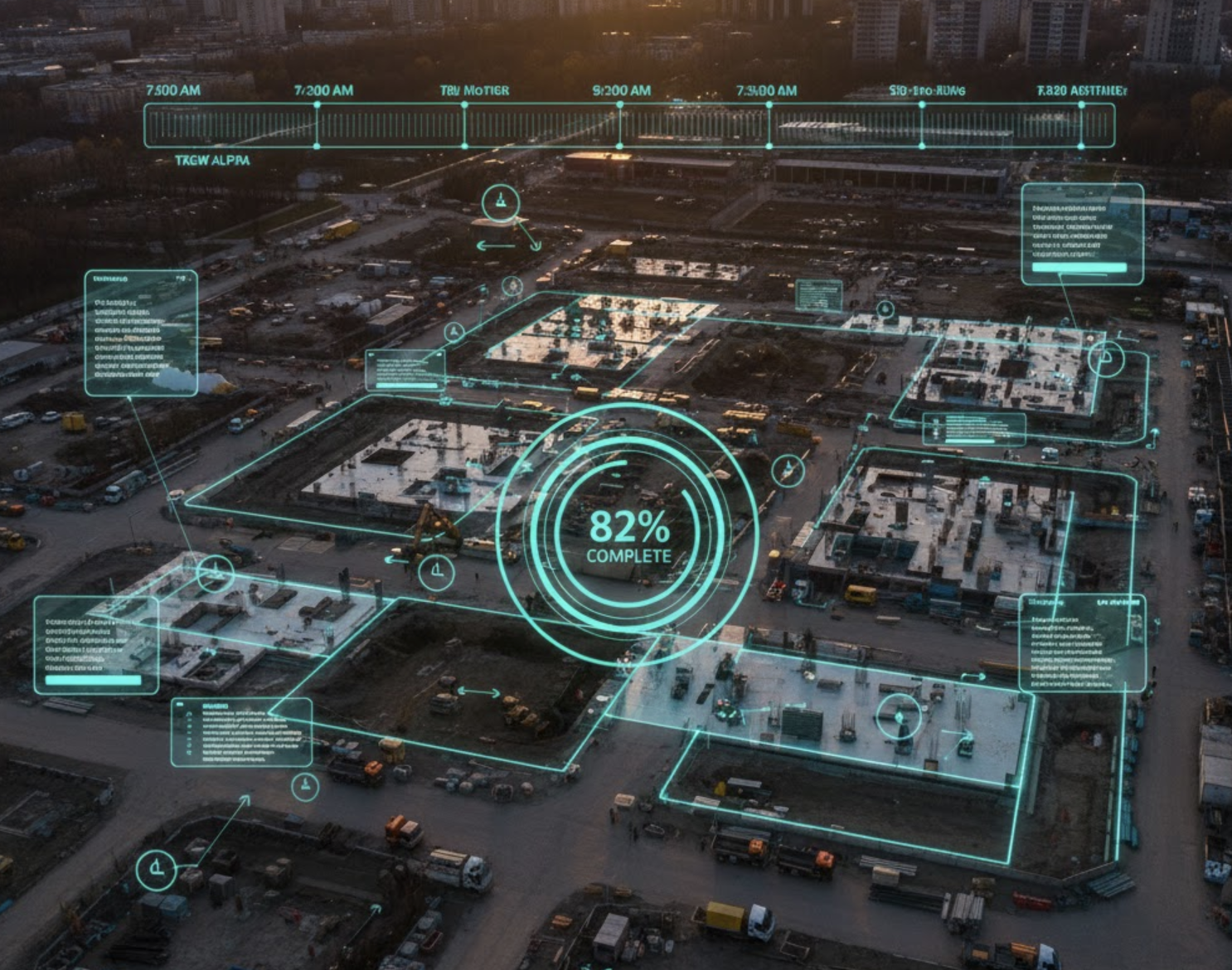From Manual to Automated: The Rise of AI in Bid Review Workflows
In the ever-evolving landscape of construction management, AI in bid management is not just a trend; it’s a significant transformation. By integrating automation, data analytics, and intelligence throughout the bid review and request for proposal (RFP) processes, AI significantly diminishes the reliance on manual effort while boosting both speed and accuracy. This article delves into the impact of AI on bid review workflows, demonstrating how platforms like Zepth facilitate a new era of efficiency.
Understanding the Scope of Automation
Automation in bid management encompasses various tasks: from document analysis and data extraction to compliance checks, content generation, deadline reminders, predictive analytics, and overall workflow management. These advancements have led to remarkable statistics, including an impressive 25% reduction in bid creation lead time and early adopters reducing response times by 30-40%.
How AI is Transforming Bid Review Workflows
1. Automation of Repetitive Tasks
One of the most impactful transformations is the automation of repetitive tasks. AI-driven tools can:
- Automated Document Analysis: AI systems analyze bid and RFP documents by extracting and classifying requirements, as well as flagging compliance and critical issues.
- Auto-Response Generation: Automatic generation of initial draft responses occurs within minutes, allowing teams to dedicate more time to personalization and strategy.
- Workflow and Deadline Management: AI systems manage tasks, assign responsibilities, track progress, and remind teams of deadlines to prevent any overlooked requirements.
- Automated Bid Tabulation: Rapid extraction and side-by-side comparison of vendor offers based on predefined parameters minimize human error and bias.
2. Enhanced Accuracy and Consistency
AI improves the accuracy and consistency of evaluations, standardizing criteria for assessing vendors and proposals. With centralized content management systems and AI-enhanced search capabilities, teams can utilize current, approved materials effectively, improving both the quality and coherence of proposals—ultimately leading to increased competitiveness.
3. Data-Driven Decision Making
AI’s ability to provide predictive analytics is truly transformative. By analyzing historical data and market trends, AI offers insightful predictions on winning bids, optimizes pricing strategies, and supports informed bid/no-bid decisions. In addition, learning from past outcomes provides actionable recommendations to refine future bidding strategies.
4. Collaboration & Personalization
The importance of collaboration in bid management cannot be overstated. Centralized platforms allow all stakeholders to access real-time dashboards for tracking statuses and managing communications, significantly reducing miscommunication and version-control errors. Moreover, AI facilitates the creation of personalized proposals tailored to client preferences and histories, heightening the relevance of the offerings.
Best Practices for Adoption of AI in Bid Workflows
Adopting AI in bid workflows entails a few best practices to maximize its advantages:
- Start with Content Automation: By implementing AI-powered content libraries and response generation tools, organizations can quickly realize efficiency gains.
- Integrate with Existing Systems: Selecting AI tools that seamlessly connect with current CRM, ERP, and other critical business platforms is crucial for smooth functionality.
- Continuous Training and Feedback: Regularly updating AI models with new data and insights from successful bids enhances their relevance and effectiveness.
- Use Analytics for Strategic Focus: Leveraging AI for strategic tasks—such as bid/no-bid assessments—as opposed to purely operational purposes will help organizations achieve greater insight.
Emerging Innovations in AI Bid Management
As technology progresses, several emerging innovations are enhancing the landscape of AI-driven bid management:
- Semantic Document Search & Summarization: Advanced natural language processing tools enable semantic searching through previous proposals for reusable content while summarizing lengthy documents for expedited reviews.
- AI-Driven Impact Analysis: Automated platforms now offer insights on how past bid decisions influence future opportunities and outcomes.
- Automated Proposal Writers & Reviewers: AI modules can generate proposal drafts and critically assess them for compliance, coherence, and competitive edges.
Use Cases
AI in bid management excels in various practical situations. Here are a few prominent use cases:
- Large-Scale Bid Reviews: AI can rapidly analyze and compare hundreds of vendor submissions, managing volumes of data that would otherwise be unmanageable.
- Complex Procurement Workflows: AI helps organizations manage compliance across varying jurisdictions, automating subcontractor management alongside ensuring robust audit trails.
- Real-Time Collaboration for Distributed Teams: Centralized dashboards and intelligent notifications contribute to keeping global teams aligned and productive.
How Zepth Empowers Automated Bid Review
Zepth’s platform significantly enhances the bid management workflow. Key features include:
- Centralized Bid Management: Zepth offers a collaborative environment for managing all bid documentation, correspondence, and decisions, ensuring real-time visibility and accountability.
- Automated Compliance and Document Control: The platform automates versioning, access control, and audit trails, minimizing risk and reducing administrative burdens on teams.
- Data Analytics and Dashboards: Decision-makers gain actionable insights into bid status, performance, and win rates, enabling informed bid/no-bid decisions.
- Custom Workflow Automation: Users can tailor and automate unique stages within their bid review workflow, including notifications, reminders, and approval sequences.
- Vendor and Subcontractor Management: Zepth simplifies the process of managing supplier information, tracking compliance documentation, and comparing submissions side by side.
- Integration with Project Delivery: Successful bid outcomes flow directly into project management, ensuring smooth execution.
For additional information about Zepth’s robust features in empowering AI-driven bid management, see Zepth’s Bid Management page and Document Control.
Conclusion
AI is rapidly reshaping the bid review process, automating manual tasks and providing in-depth strategic insights. The benefits of this transformation include improved speed, enhanced accuracy, data-driven decisions, and reinforced collaboration within teams. By leveraging Zepth’s innovative modules for bid management, compliance tracking, document control, and analytics, construction organizations can seamlessly navigate this evolution toward full automation in their workflows.




